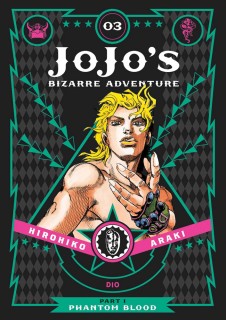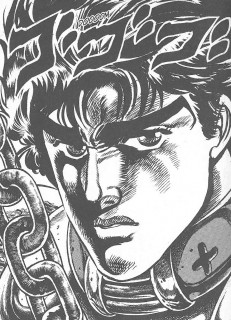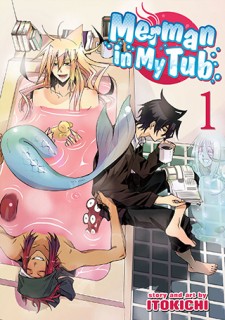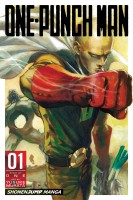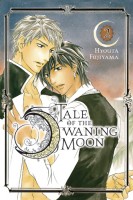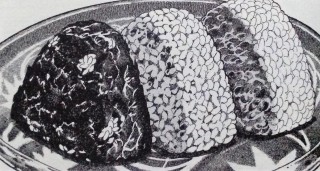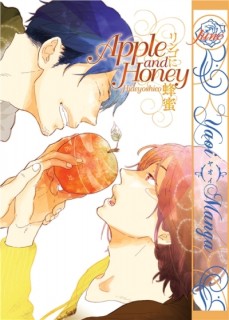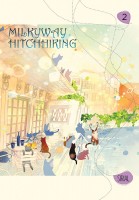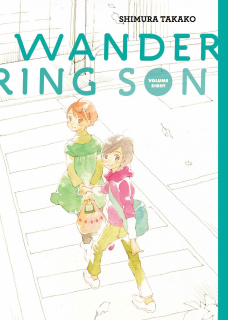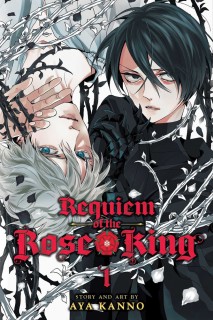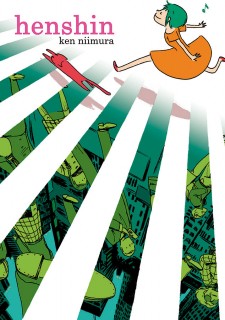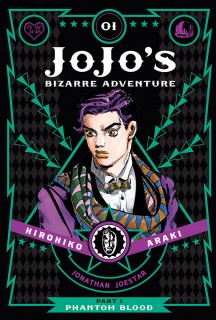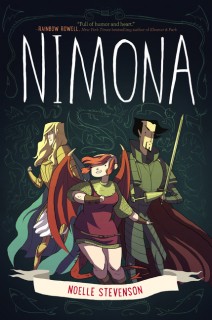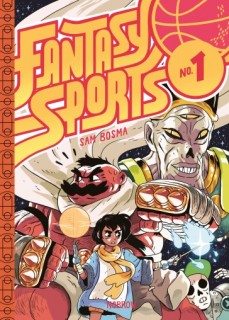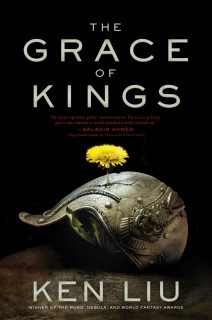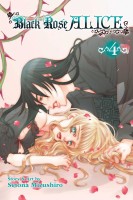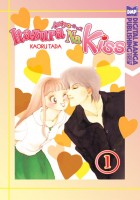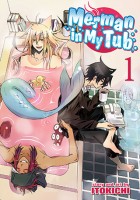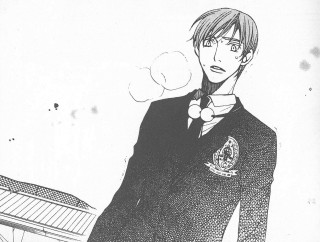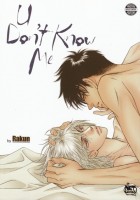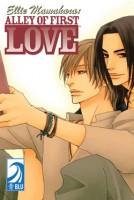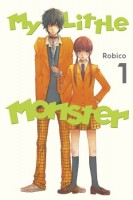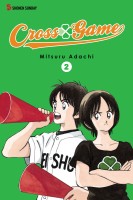My News and Reviews
The new year is now well on its way, and I finally feel like I’m getting back into my writing groove; my regular posting schedule has mostly returned, though there might be a slight interruption in February. Anyway. In addition to the regular My Week in Manga feature, there were two other posts at Experiments in Manga last week. The first was the announcement of the Merman in My Tub Giveaway Winner which also includes a compiled list of some of the giveaway participants’ favorite manga that were released in 2015. The second post last week also happened to be the second in-depth manga review for the year—JoJo’s Bizarre Adventure, Part 1: Phantom Blood, Volume 3 by Hirohiko Araki. It’s such a ridiculous, over-the-top series, but I’m sincerely enjoying it.
As for some of the interesting things I’ve discovered online recently: The news was previously leaked, but Dark Horse has now officially announced its two new manga licenses, Kenji Tsuruta’s Wandering Island and CLAMP’s RG Veda. I thought I had mentioned it a few weeks ago when it first launched (apparently I forgot), but Digital Manga’s boys’ love imprint Juné has a new Kickstarter project to publish four titles by Sakira in print. At least three of the four manga were Digital Manga Guild publications that were previously only available digitally. The project has already succeeded, but Digital Manga’s plan is to put a fair amount of the money pledged into restocking/reprinting some of its older, hard-to-find boys’ love titles. Finally, over at MangaBlog, Kate Dacey, Brigid Alverson, and Deb Aoki talk about some of their most anticipated manga of 2016, many of which happen to be some of my most anticipated releases as well.
Quick Takes
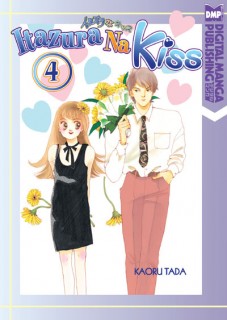 Itazura na Kiss, Volumes 4-6 by Kaoru Tada. For the most part, I’m continuing to enjoy Itazura na Kiss. At this point in the series, Naoki and Kotoko are in college, each trying to figure out what to do with their lives. Kotoko’s infatuation with Naoki is the most important impetus for her to do just about anything, whether it be joining the tennis club, becoming a waitress, or trying her hand at office work. Normally, this would probably annoy me, but I appreciate her gusto, individuality, and willingness to follow through with what she’s started. Even though Kotoko is so incredibly focused on Naoki, her world actually doesn’t completely revolve around him and she’s not defined by him either, which I think is what makes her character work for me. Were it otherwise, I don’t think that I would enjoy the series nearly as much. Naoki continues to be aloof and more often than not a jerk. One particular instance in which Kotoko is unnecessarily treated very poorly could have been avoided entirely if he would have just had the courtesy to tell her what was going on, and there was no good reason for him not to. Thankfully, this sort of behavior isn’t romanticized or idealized in the manga.
Itazura na Kiss, Volumes 4-6 by Kaoru Tada. For the most part, I’m continuing to enjoy Itazura na Kiss. At this point in the series, Naoki and Kotoko are in college, each trying to figure out what to do with their lives. Kotoko’s infatuation with Naoki is the most important impetus for her to do just about anything, whether it be joining the tennis club, becoming a waitress, or trying her hand at office work. Normally, this would probably annoy me, but I appreciate her gusto, individuality, and willingness to follow through with what she’s started. Even though Kotoko is so incredibly focused on Naoki, her world actually doesn’t completely revolve around him and she’s not defined by him either, which I think is what makes her character work for me. Were it otherwise, I don’t think that I would enjoy the series nearly as much. Naoki continues to be aloof and more often than not a jerk. One particular instance in which Kotoko is unnecessarily treated very poorly could have been avoided entirely if he would have just had the courtesy to tell her what was going on, and there was no good reason for him not to. Thankfully, this sort of behavior isn’t romanticized or idealized in the manga.
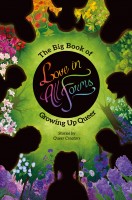 Love in All Forms: The Big Book of Growing Up Queer edited by Serafina Dwyer. I follow the work of Kori Michele Handwerker who contributed to Love in All Forms which is how I first learned about the collection. I was also thrilled to discover that Jennifer Doyle, another artist whose work I enjoy, was also a contributor. The anthology collects fourteen comics by queer creators about queer children. Most of the creators were actually new to me, so I’ve definitely found some new artists to follow. As for the comics themselves, some of the stories are based in reality, while others are fantasy or science fiction, but they all deal with love and personal identity in one way or another. Many of the characters skew towards the feminine side of the gender non-conforming spectrum, but there’s a nice range of representation in the anthology with an emphasis on acceptance. Generally the stories tend to be fairly optimistic, which is marvelously refreshing. The name of the anthology might be a little misleading, or at least overly broad or ambitious, but it’s a lovely collection of beautifully heartfelt and touching queer comics.
Love in All Forms: The Big Book of Growing Up Queer edited by Serafina Dwyer. I follow the work of Kori Michele Handwerker who contributed to Love in All Forms which is how I first learned about the collection. I was also thrilled to discover that Jennifer Doyle, another artist whose work I enjoy, was also a contributor. The anthology collects fourteen comics by queer creators about queer children. Most of the creators were actually new to me, so I’ve definitely found some new artists to follow. As for the comics themselves, some of the stories are based in reality, while others are fantasy or science fiction, but they all deal with love and personal identity in one way or another. Many of the characters skew towards the feminine side of the gender non-conforming spectrum, but there’s a nice range of representation in the anthology with an emphasis on acceptance. Generally the stories tend to be fairly optimistic, which is marvelously refreshing. The name of the anthology might be a little misleading, or at least overly broad or ambitious, but it’s a lovely collection of beautifully heartfelt and touching queer comics.
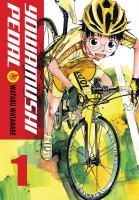 Yowamushi Pedal, Omnibus 1 (equivalent to Volumes 1-2) by Wataru Watanabe. I’ve watched and enjoyed part of the Yowamushi Pedal anime adaptation, so I wasn’t especially surprised by any of the developments found in the original manga. Even so, the first omnibus was great fun and I enjoyed it a great deal. Onoda is a fan of anime and manga whose surprising natural talents and regular trips by bicycle to Akihabara using less than ideal equipment have granted him some impressive cycling skills. He doesn’t even recognize his own abilities, though, not at all identifying with the more athletically inclined students at his school. But after several curious turns of events, he finds himself joining the bicycle road racing club. Watanabe isn’t very subtle when working information about cycling and bicycles into the story, which can be a little jarring, but the manga is still entertaining and I really like the characters. I’m glad that Yen Press is taking a chance on a long-running sports manga (the series is already over forty volumes in Japan and is still ongoing) and I sincerely hope that Yowamushi Pedal is a success.
Yowamushi Pedal, Omnibus 1 (equivalent to Volumes 1-2) by Wataru Watanabe. I’ve watched and enjoyed part of the Yowamushi Pedal anime adaptation, so I wasn’t especially surprised by any of the developments found in the original manga. Even so, the first omnibus was great fun and I enjoyed it a great deal. Onoda is a fan of anime and manga whose surprising natural talents and regular trips by bicycle to Akihabara using less than ideal equipment have granted him some impressive cycling skills. He doesn’t even recognize his own abilities, though, not at all identifying with the more athletically inclined students at his school. But after several curious turns of events, he finds himself joining the bicycle road racing club. Watanabe isn’t very subtle when working information about cycling and bicycles into the story, which can be a little jarring, but the manga is still entertaining and I really like the characters. I’m glad that Yen Press is taking a chance on a long-running sports manga (the series is already over forty volumes in Japan and is still ongoing) and I sincerely hope that Yowamushi Pedal is a success.
